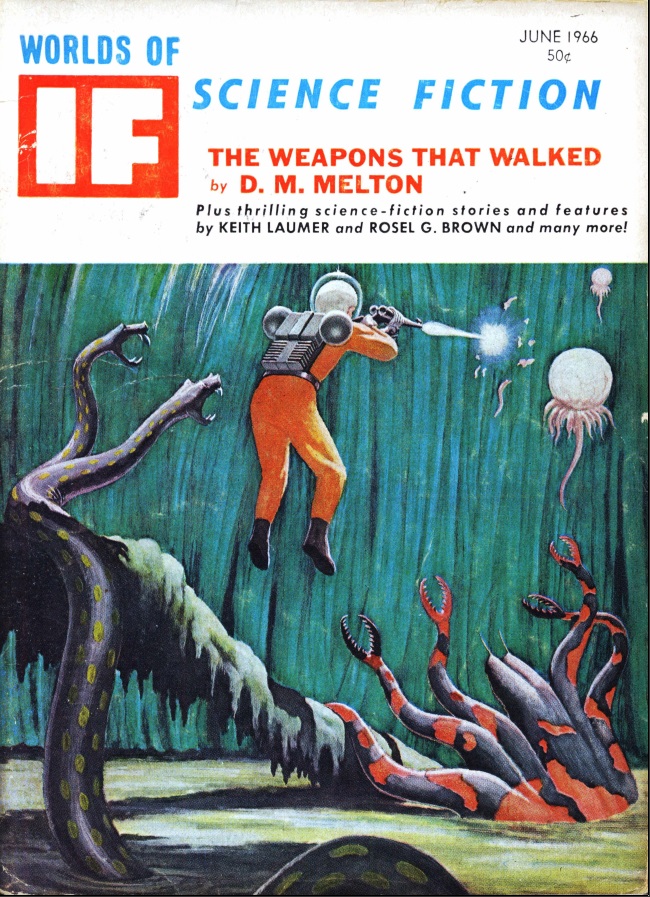
by Kaye Dee
Tasmania’s Black Tuesday
The poet Miss Dorothea Mackellar refers to Australia as a “sunburnt” country, but the recent devastation in Tasmania reminds us that Australia is also very much a “sun-burned” country.
Bushfire disasters are nothing new in Australia, but the horrific catastrophe of 7 February, which has already been dubbed “Black Tuesday”, ranks as one of the worst this country has experienced. In less than a day, 62 people were killed (the second largest number in the nation’s bushfire history) and more than 900 injured. Almost 1300 homes are believed lost and over 1700 other buildings destroyed. It has been estimated that at least 62,000 farm animals have also perished.

After a long dry spell, it seems that an unfortunately “ideal” combination of weather factors on the 7th led to the disaster. Across southern Tasmania, the island state that lies to the south of the Australian mainland, there were already extremely high temperatures (the maximum was 102 °F!) and very low humidity when intense winds from the northwest fanned a number of bushfires burning in remote areas into raging infernos.

110 separate fire fronts burned through around 652,000 acres in the space of just five hours! Within a forty mile radius around Hobart, the state capital, many towns and rural properties have experienced significant damage: twelve towns have been completely destroyed. Even Hobart itself has not escaped unscathed, with hundreds of homes and businesses razed, including the famous Cascade Brewery. With most communications and services cut, thousands were evacuated to Hobart at the height of the emergency, and it is believed that up to 7000 people are now homeless. The total damage bill is already being estimated at a staggering $40,000,000 Australian dollar values! But recovery efforts are underway and help is pouring into the “Apple Isle” from all over Australia. Southern Tasmania will rise from the ashes, but recovery will be a long process that will take many years.

by Gideon Marcus
Literal tragedy
Kaye's tragedy is heartbreaking, the sort of thing one for which one flees into fiction. Sadly, the latest issue of Fantasy and Science Fiction offers little in the way of solace.
Sooty pages
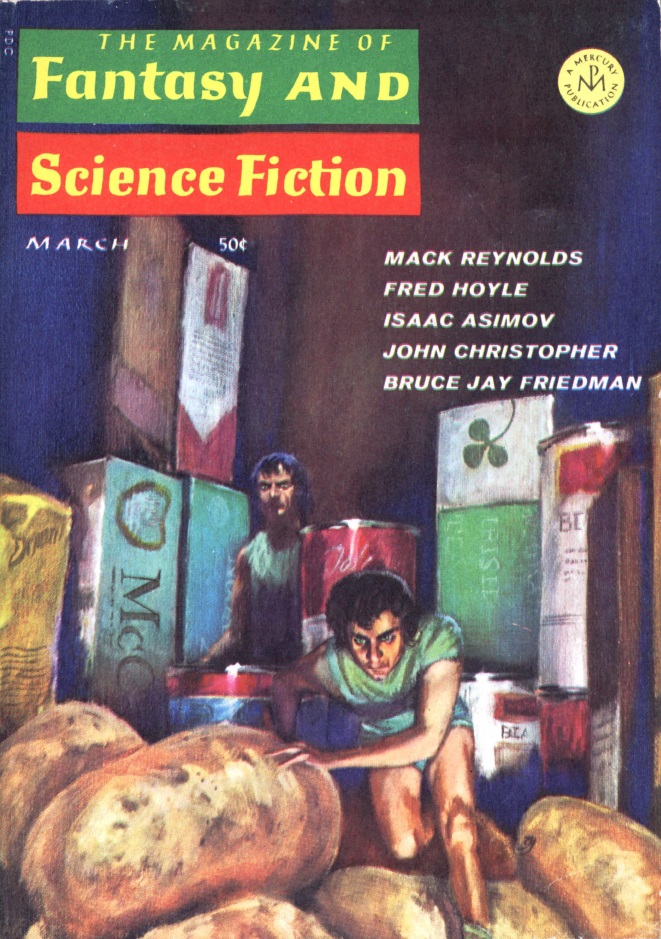
by Jack Gaughan (these folks don't actually appear this issue…)
The Sea Change, by Jean Cox
The editors Ferman have saved perhaps their best for first. A young failure, son of a brilliant marine biologist who committed suicide at the height of his career, attempts one final emulation of his father. In a poignant scene, he doffs his clothes, dives into the water, and drowns.
But rather than die, he finds himself kept alive via a biological symbiote on his back. He is welcomed into an underwater commune of sorts, a living socialism of sea creatures for which his hands and intellect are desired additional traits. Recruited to dispose of their failed attempts to create humans underwater, he is faced with a choice: a blissful existence as part of a hive mind underwater, or a sorrowful existence as an independent failure on dry land.
In a way, this tale is the opposite of Bob Sheckley's Pusher, one of my very favorite stories. Sea Change is beautifully written, but I found the end unconvincing, and the decision disappointing.
It teeters on the edge of four stars, but just misses, I think.
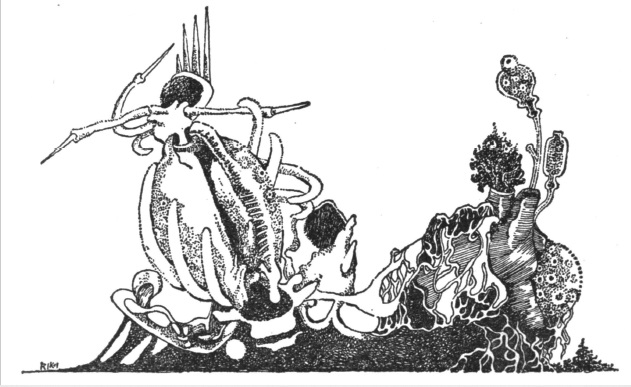
The Investor, Bruce Jay Friedman
Odd piece about a stock broker whose pulse becomes directly tied to the share price of one of his investments. I think it's supposed to be satire?
Two stars.
Zoomen, Fred Hoyle
On a trip in the Scottish Highlands, a fellow is scooped up by aliens and imprisoned on a ship with eight other humans of many backgrounds, four men and four women. Our hero believes that they are destined to be seeding stock for an interstellar menagerie. Clues include the even gender make-up, their indifferent treatment, and their rough conditioning (made to be nauseated as a goad).
This tale is nicely written, a bit reminiscent of the beginning of Hoyle's October the First is Too Late, which also started with a Scottish trek. Like that novel, but even more so, the ending is a let down, and without any of the attendant philosophical interest.
Three stars.
The Long Night, Larry Niven
A momentary uptick with this bagatelle, a variation on the deal with the devil theme. A student of magic decides to cap his doctoral thesis by summoning a demon. Of course, now his soul is forfeit, unless he asks for the right gift–and uses it to its fullest.
It's fun, and apparently utilizes the author's B.S. in Mathematics.
Four stars.
Relic, Mack Reynolds
Like all mountains, once one reaches the summit, it's all downhill from there. In this tale, we meet an octogenarian Lord Greystoke, now mostly insane and very violent. The slightest affront sends him into a murderous rage, and he soon builds up a trail of bodies, punctuating each kill with an ululating bull gorilla roar.
Another "funny" piece. I din't like it.
Two stars.
Crowded!, by Isaac Asimov
It's been nearly a decade since Dr. A started this column, and of late, he's been running out of ideas. He's back to geographic lists, taking a hodgepodge of mildly interesting facts from almanacs and atlases. This time, it's a list of "great cities" (over a million residents) and their world distribution.
I've got an atlas, too, Isaac. A couple of 'em.
Three stars.
The Little People, by John Christopher
Which leaves us with the much-anticipated conclusion of the serial. In the first installment, we were introduced to Bridget, heir to a dilapidated Irish hostel…and a secret. After her first group of neurotic guests have been assembled, they find hints that the place is inhabited by Little People.
In Part 2, we find that they are not of magical provenance at all, but are actually tiny Jews, forced into diminution and then tortured by an exiled Nazi scientist. Much brouhaha is made regarding their disposition. I assumed Part 3 would resolve the outstanding threads.
It does not. Instead, each of the lodgers has some sort of vision, mostly unpleasant. A good forty pages is taken up with these nightmares in which the eponymous tiny ones make no appearance whatsoever. In the end, the episodes are explained as some kind of ESP-as-torment, and the manor is abandoned.
It's the worst of cop-outs, redolent with sex. I'm afraid no amount of attempts to titilate can cover the fact that there's no there there.
Two stars for this segment, and two and a half for the serial as a whole. I prefer consistent mediocrity to an undelivered promise.
Scorched Earth
And that's that! A disappointing 2.7 star issue with only one unalloyed success, and that one very short. In the latest Yandro, Don & Maggie Thompson maintained that F&SF is the best of the SF mags. That may have been true a decade ago. It hasn't been true in a while.
Just as Tasmania may rebuild, so F&SF could return to greatness. I just hope I live long enough to see it…

by Gahan Wilson (by way of Mack Reynolds, it seems…)

![[February 20, 1967] To Ashes (March <i>Fantasy and Science Fiction</i>)](https://galacticjourney.org/wp-content/uploads/2022/02/670220cover-661x372.jpg)

![[February 4, 1967] The Sweet (?) New Style (March 1967 <i>IF</i>)](https://galacticjourney.org/wp-content/uploads/2022/01/IF-Cover-1967-02-full-672x372.jpg)




![[January 2, 1967] Different perspectives (February 1967 <i>IF</i>)](https://galacticjourney.org/wp-content/uploads/2021/12/IF-Cover-1967-01-672x372.jpg)


![[November 12, 1966] A Family Tradition (December 1966 <i>Galaxy</i>)](https://galacticjourney.org/wp-content/uploads/2021/11/661112cover-469x372.jpg)



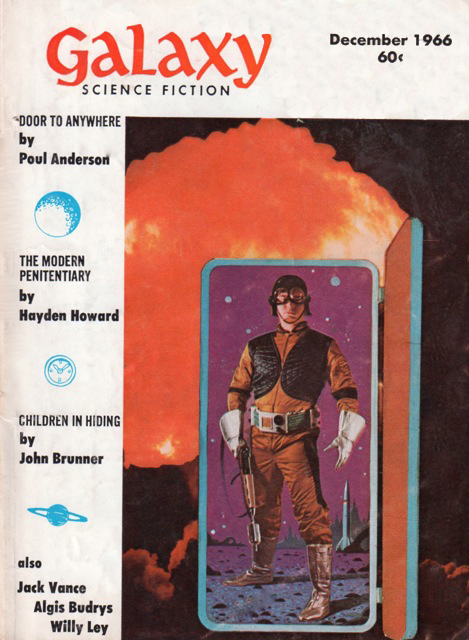

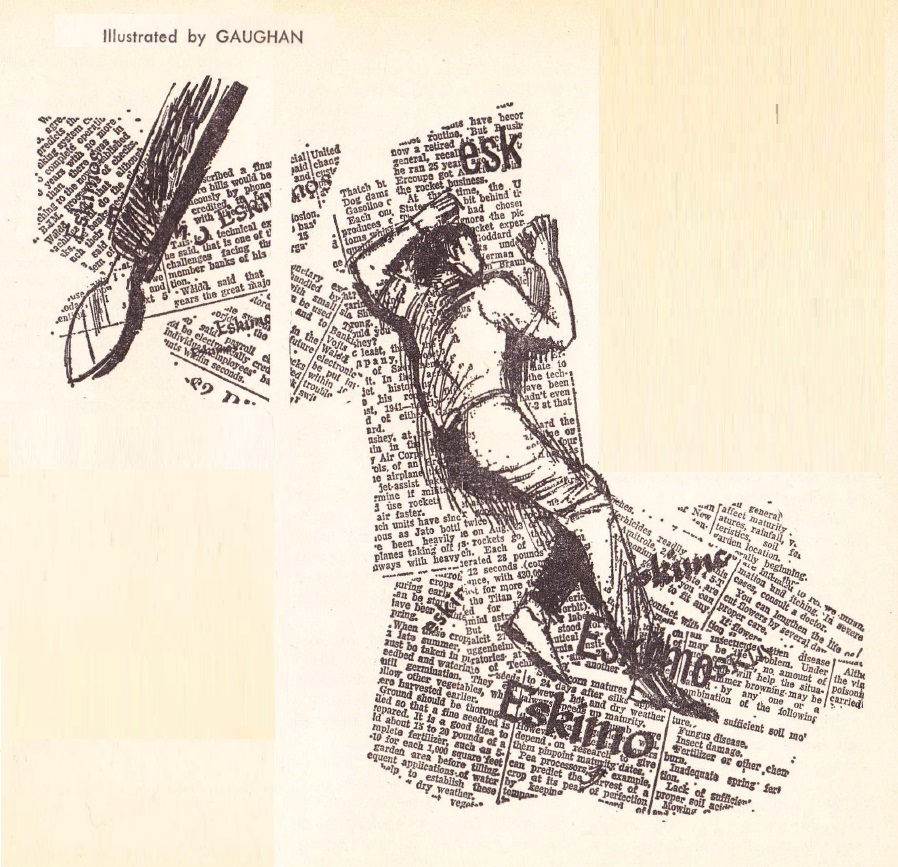
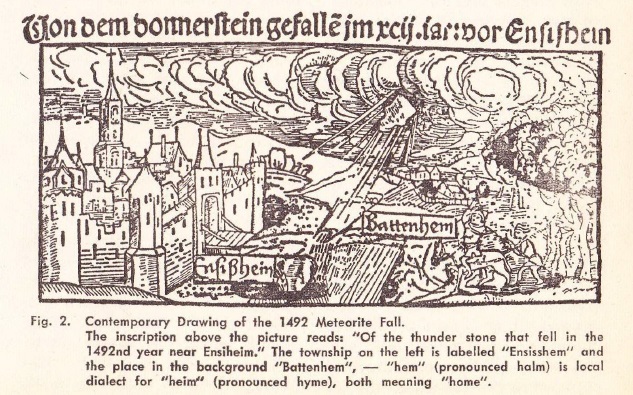






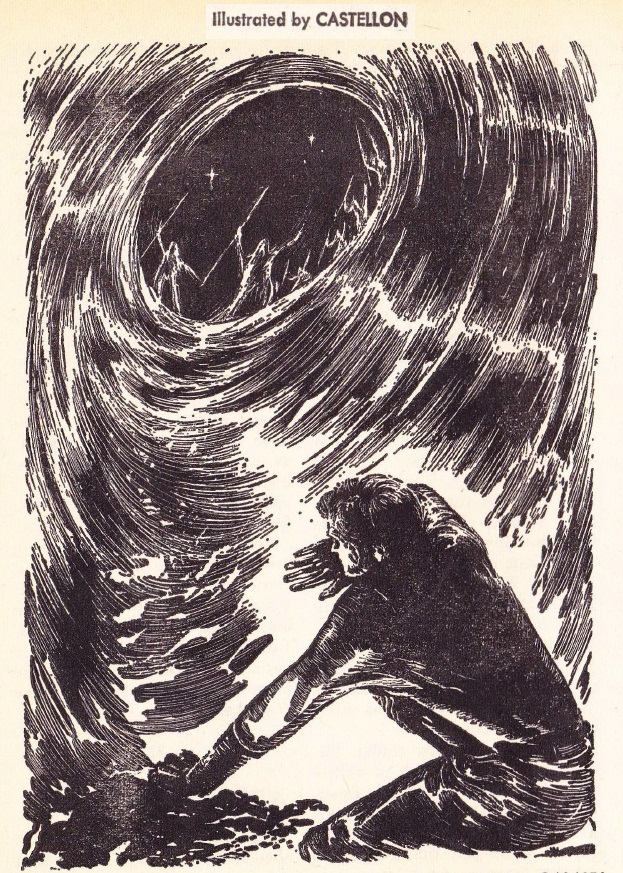
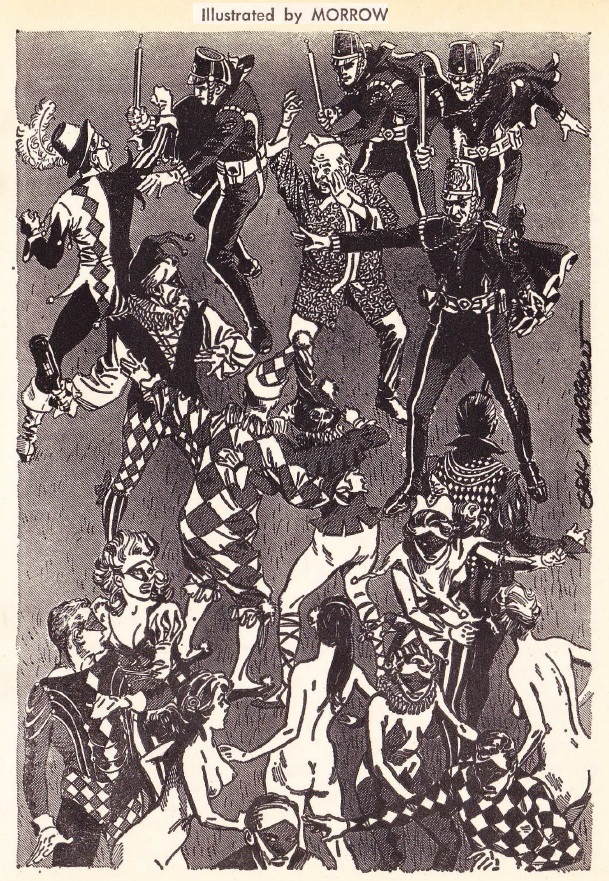


![[November 6, 1966] Starting Over (December 1966 <i>IF</i>)](https://galacticjourney.org/wp-content/uploads/2021/11/IF-1966-11-Cover-650x372.jpg)


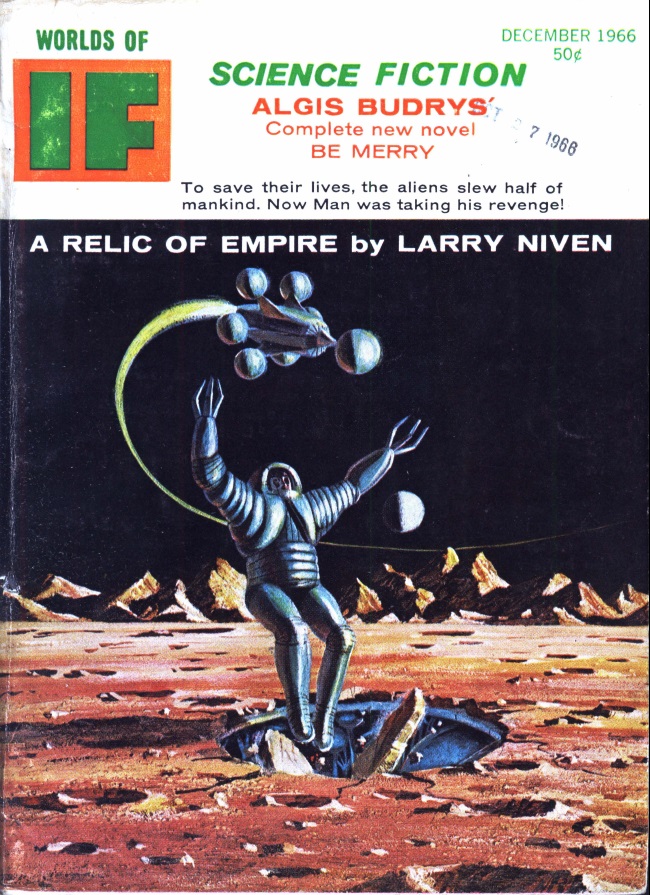
![[October 2, 1966] At Heart (November 1966 <i>IF</i>)](https://galacticjourney.org/wp-content/uploads/2021/09/IF-1966-10-Cover-646x372.jpg)


![[September 14, 1966] All the Old Familiar Places (October 1966 <i>Galaxy</i>)](https://galacticjourney.org/wp-content/uploads/2021/09/660912cover-672x372.jpg)

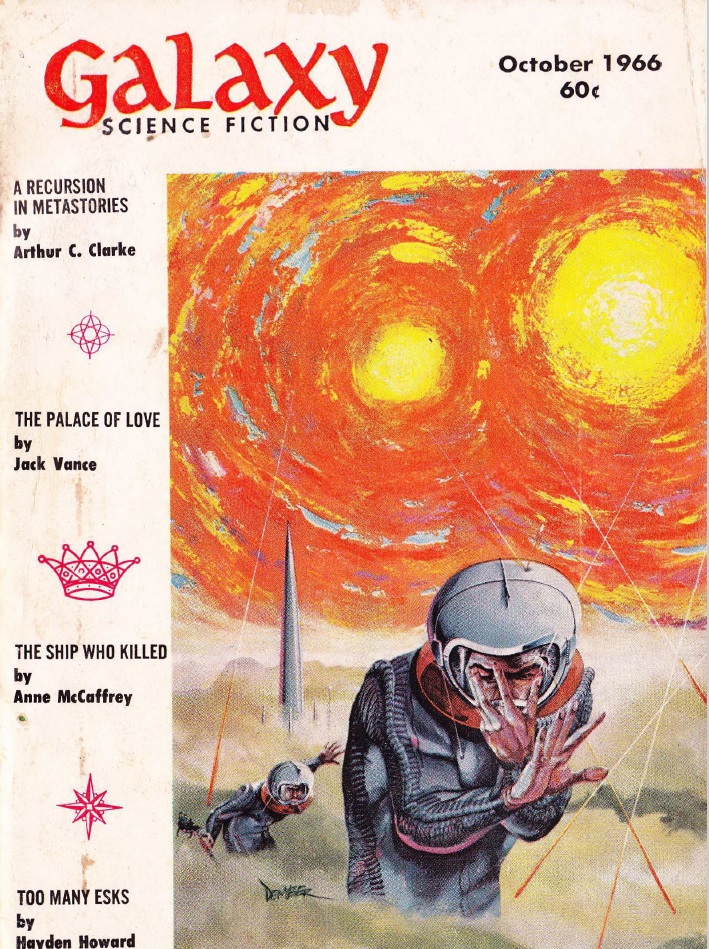
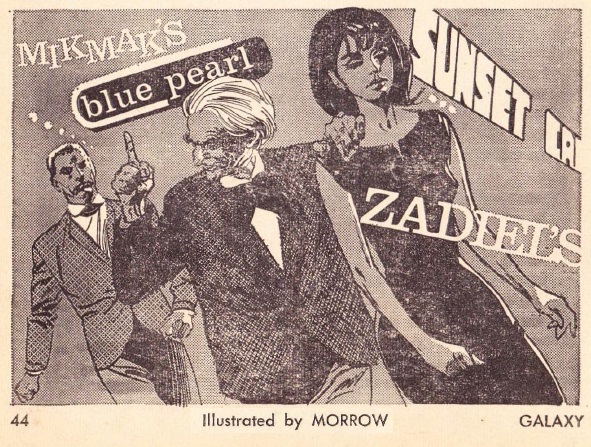
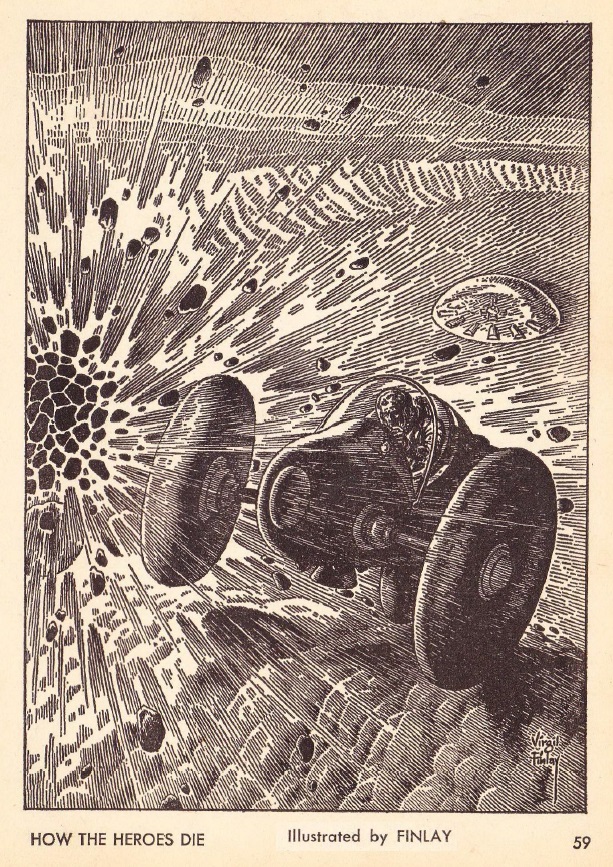
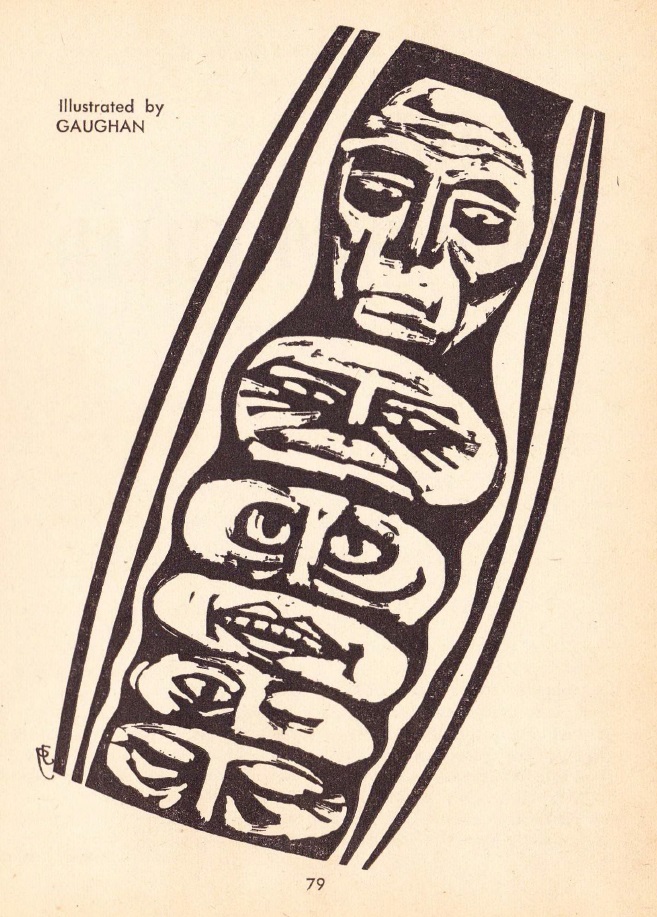
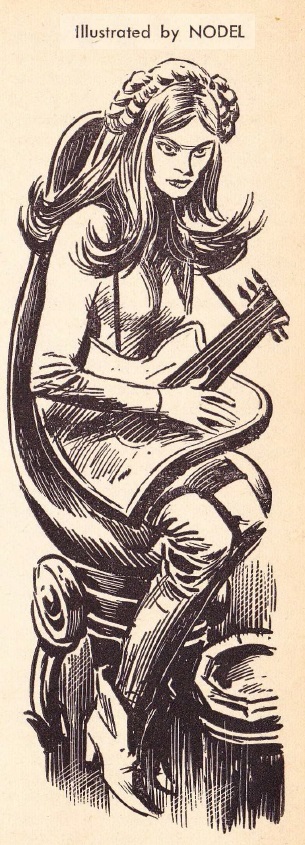
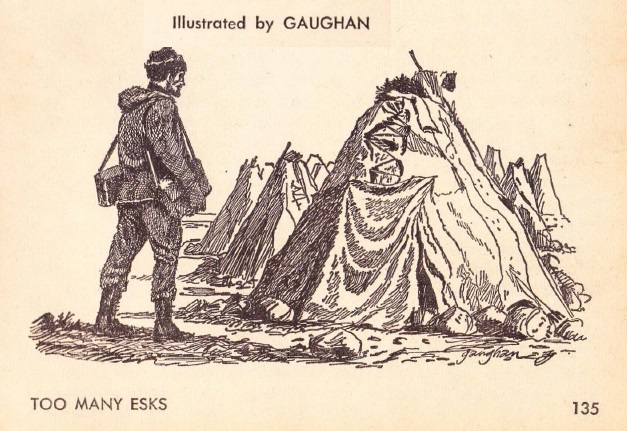
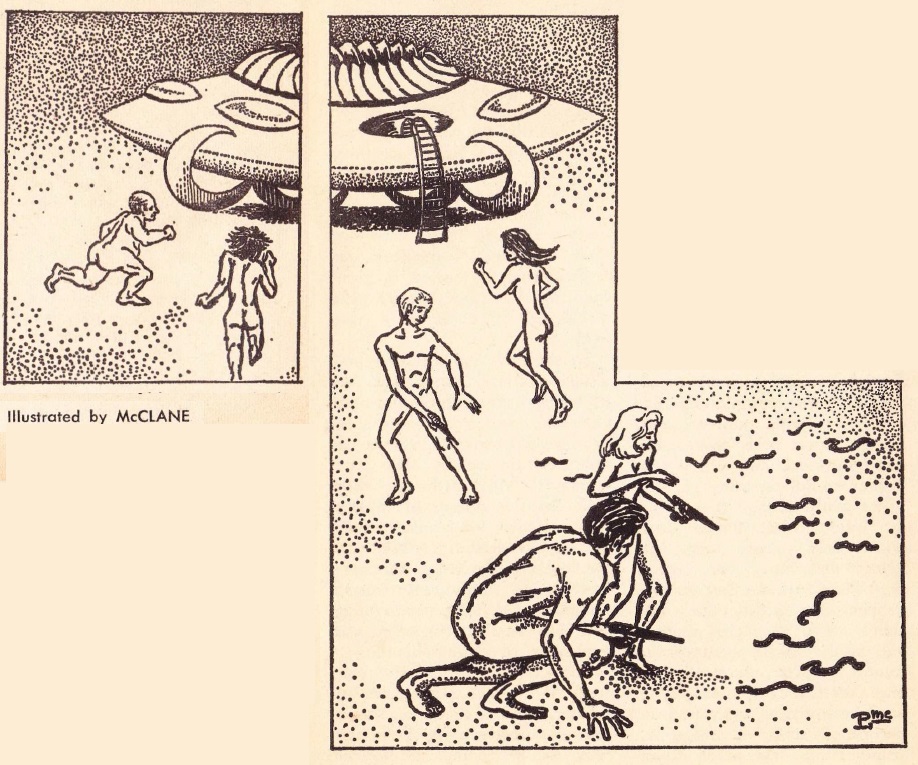

![[September 2, 1966] On the Edge (October 1966 <i>IF</i>)](https://galacticjourney.org/wp-content/uploads/2021/08/IF-1966-10-Cover-662x372.jpg)



![[June 24, 1966] Increments: <i>World's Best Science Fiction: 1966</i>, edited by Donald A. Wollheim and Terry Carr](https://galacticjourney.org/wp-content/uploads/2021/06/wollheim-66-cover-449x372.png)


![[May 2, 1966] By Any Other Name (June 1966 <i>IF</i>)](https://galacticjourney.org/wp-content/uploads/2021/04/IF-1966-06-Cover-650x372.jpg)

